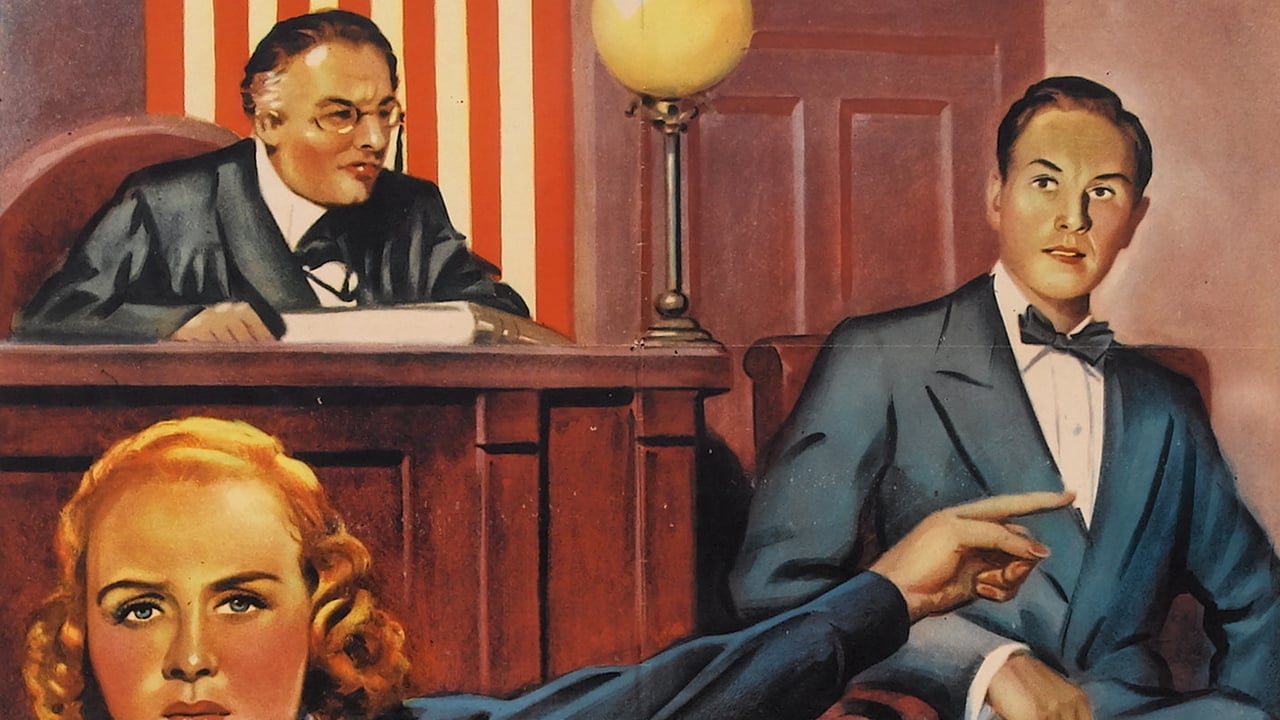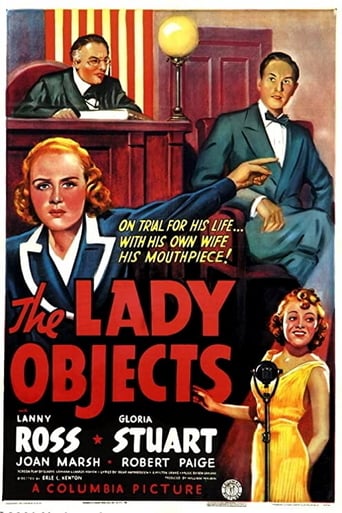

Just what I expected
... View MoreBest movie of this year hands down!
... View MoreNot sure how, but this is easily one of the best movies all summer. Multiple levels of funny, never takes itself seriously, super colorful, and creative.
... View MoreThis movie feels like it was made purely to piss off people who want good shows
... View MoreWhile this 1938 Columbia film is usually described as a drama, with 7 featured songs dispersed throughout the film, I submit it should be described as a musical drama. It's essentially a remake(nearly an exact copy) of the 1933 "Ann Carver's Profession", except that it has more and different songs, and the infidelity angle is toned down to please the censors.It's the story of a young couple, in which the man(Lanny Ross, as Bill Hayward) becomes dissatisfied with his marriage, because his wife(Gloria Stuart, as Ann) has achieved a measure of public recognition for her rise from secretary of a law firm to a top ranking lawyer. In contrast, he feels his public recognition has slipped from being the star football player at his school to being a so so draftsman at an architectural firm. He feels he has become Mr. Ann Hayward. and feels neglected as a spouse because of Ann's increasingly heavy workload.Bill has a good singing voice and memory for lyrics, thus decides to scrap his architectural job to be a nightclub singer, which he feels gives him more public recognition. However, this creates even more of a problem that they see little of each other, and he cannot accompany her to evening social events. Eventually, Bill moves out, and in with a boozy female singer(Joan Marsh as June Lane). She loses her job, and drinks more, creating friction with Bill. One evening, she passes out from drink, and bizarrely is strangled by her long necklace, which catches on the armchair as she falls. Bill is mostly blamed for murdering her, although the evidence is all circumstantial. In court, things are not going his way, until Ann, rejected by Bill as his council, takes a stand, saying that what the prosecuting attorney says about Bill is mostly lies. She blames herself for the breakup of their marriage, by being too ambitious in her profession, neglecting him. She has decided the perks she has gotten from her recent fame weren't worth the cost in private happiness.This is a warning to women, in general, not to take up a profession that will consume their private lives, unless they are willing to remain single and uncommitted. It's also a warning of the difficulty of taking up a profession that is traditionally only practiced by men. This was later explored in "Calamity Jane" and "Anne Get Your Gun", for example. Thus, there are both pro and anti-messages for married women working out of the home.Incidentally, in the Soundtracks section of this site, it's erroneously stated that Lanny Ross sang all of the songs. Actually, Joan Marsh(June) sang 2 numbers: "Sky High" and "Naughty, Naughty". These 2 songs were composed by Milton Drake, whereas all the songs that Lanny sang were composed by Ben Oakland and Oscar Hammerstein II. These include "That Week in Paris", "When Your in the Room", "A Mist is Over the Moon" "Victory Song", and "Home, in Your Arms". Incidentally, "Home, in Your Arms" was the last to be sung, appropriate when Ann and Bill had made up. Roy Benson(George) serves as orchestra leader and also does a few magic tricks while on the podium: quite a unique combination!I much enjoyed this film, and you can see it at YouTube.
... View MoreAnn Adams Hayward(Gloria Stuart)marries her sweetheart William Hayward(Lanny Ross). The former college football star struggles being an architect, while Ann's career escalates from secretary to criminal justice lawyer. The two separate and William begins making extra money as a night club singer. When he is wrongly accused of murder, Ann bails him out of jail and defends him in court.Some powerful music in this drama like "A Mist Over the Moon", "When You Are In The Room", "Sky High" and "Naughty, Naughty".Erle C. Kenton directs. Other players include: Joan Marsh, Robert Paige, Roy Benson, Arthur Loft, Jan Buckingham and Pierre Watkins.
... View MoreAs a wife's (Gloria Stuart) career goes up and up, her husband's (Lanny Ross) goes down, down, but when he's accused of murder she comes to his defense. Interesting acknowledgment, for 1938, that a woman can in fact have a successful career -- and much a healthier viewpoint than that of Woman of the Year four years later, for instance -- but the authenticity is compromised by Lanny Ross's details: he's an ex-halfback who leaves his architecture firm to become a nightclub crooner. Yeah, right, there are lots of those. Nice work from Gloria Stuart -- she has an enjoyable scene in which she wins a case through a bit of chicanery -- and the Oscar-nominated tune is pleasant.
... View More